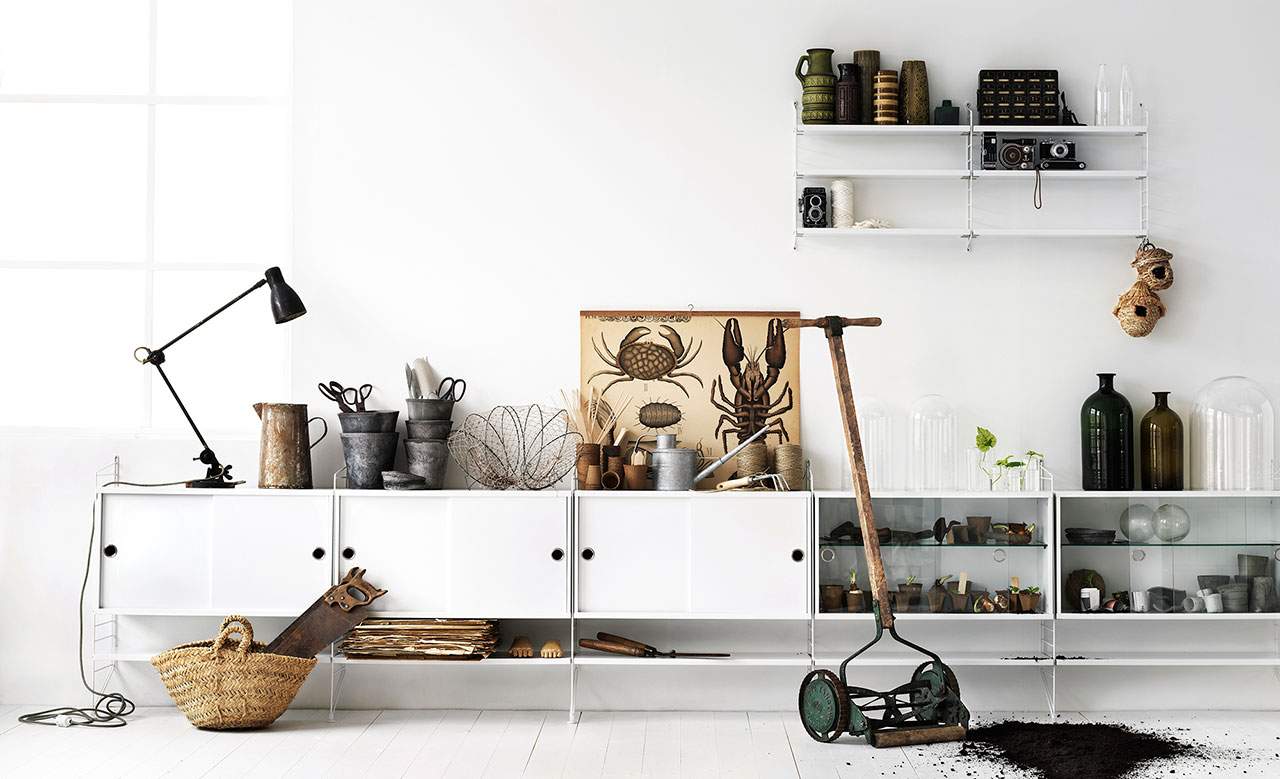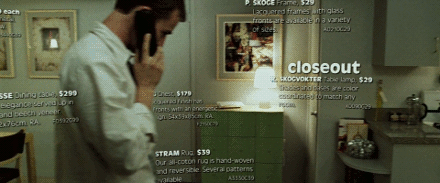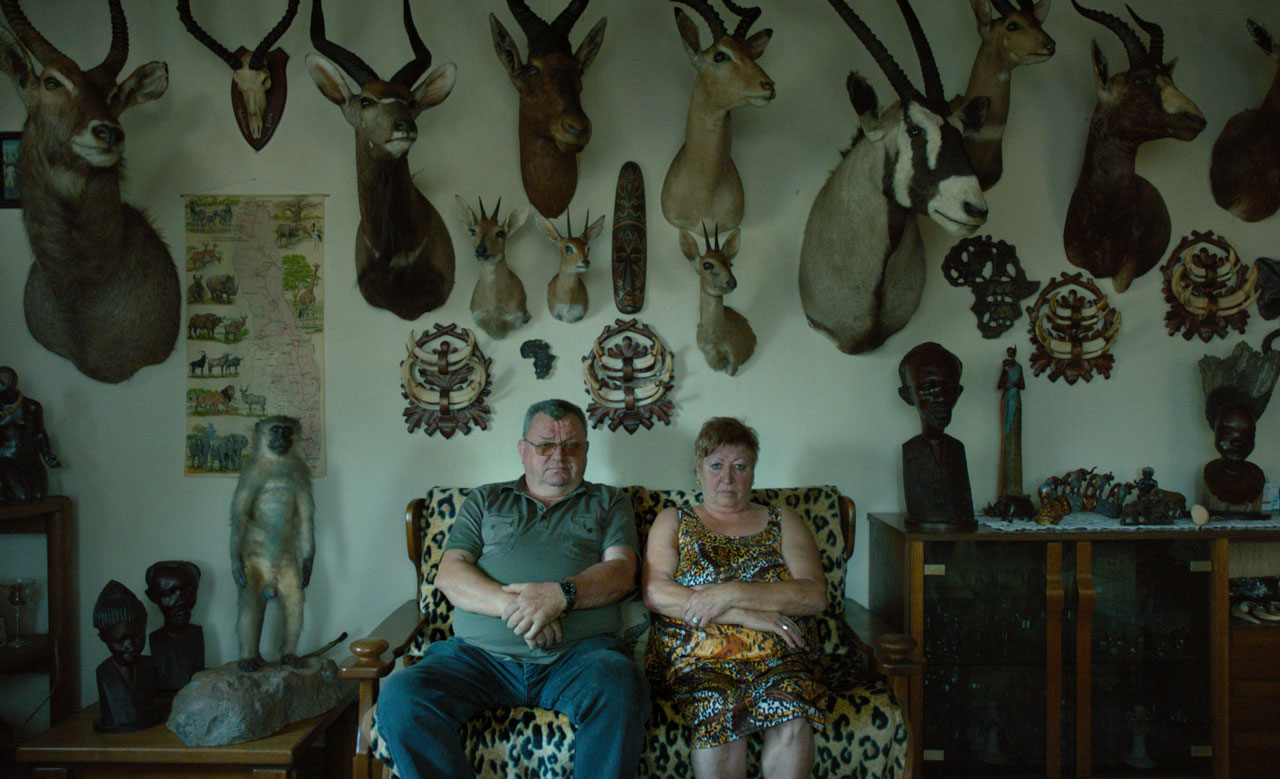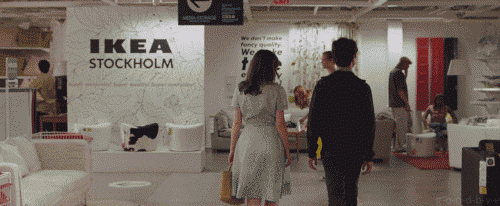The Snoopologist Analysing Our Bookshelves and Home Interiors
Even in the age of minimalism and home decorators, your stuff says a lot about you.
"The things you own end up owning you." With that one memorable line, Fight Club's Tyler Durden became an unexpected forebear to the current trend for minimalism. But we've got news for you, declutterers and ascetics: even with all that absence of stuff in your life, the experts can still tell a lot about you as a person.
Meet Sam Gosling, professor of psychology at the University of Texas and self-styled 'snoopologist' (good word, you have to hand it to him). He's the author of Snoop: What Your Stuff Says About You, a book that explores how we project our personality in the spaces we create, and also how the spaces we inhabit influence our inner lives. He literally spends his life poking around bedrooms, offices, wardrobes, cars — anything you think is private is Gosling's lab.
Ahead of his talk at Wired for Wonder in Sydney, we spoke with Sam about interior decorators, capitalism and our definitely awesome book collections.
Can you give me a quick rundown of what you’ll be discussing at Wired for Wonder?
I’ll be discussing how people affect space and how spaces affect people — both deliberately and inadvertently. There are things we can do — obvious things — to try and signal something to someone, but there are also things we’re less self-aware of. It’s these things that I pick up on and use to reveal things about the person who lives or works or socialises in that space.
Based on what you see in someone’s house, can you tell what someone’s political leaning might be?
We did some research in the US a few years ago which produced some surprising results. I think most people think that people interested in the arts tend to be closer to the left. But we found art and books about art have no relation to political orientation. However, we did find that someone who has sports-related decor in their space is likely to be more conservative, politically speaking. That said, it’s not so much what someone's interested in, as the number of things they're interested in. On average, if you have a narrow scope of interests, you’re more likely to be politically conservative.
What do you think about professionally designed interiors?
They can work ... but only if the client is genuinely able to convey what it is that they really want. Most people are actually pretty clueless about what will make them happy. When it comes to interior design people see things in magazines or on Pinterest and go, “There! That’s exactly what I want!” But the problem with this kind of wish-list making is that it’s impersonal. I work with the architect Christopher Travis – he’s amazing, a real visionary. He doesn’t ask his clients to describe their dream house. He starts by asking things like, “Tell me about a time in your life when you felt protected, loved. Now tell me about the physical space you were in.” And people will say things like, “My best memories are weekends away at my grandparents’ house when I was a kid learning to ride my bike on the gravel side road.” He’ll then somehow incorporate gravel into the design. Then again, trying to replicate an interior someone found on Pinterest might be important to them because they want their space to be on trend. So Christopher will ask other questions like, “What is it you want the space to say to your friends? Who do you want to be to these people?”
I saw In the Basement at Sydney Film Festival. It’s an Austrian documentary about what some people get up to in their basements. There was an older, childless woman who kept a collection of dolls in shoes boxes. They were those dolls that looked incredibly life-like. She nursed them like real babies. I felt sad that these people had to hide away their passions, that their home wasn’t really a place they could express themselves.
The thing is, the home has both public and private spaces. People put very different things in the living room than in their bedroom or the guest bedroom. That’s obvious enough. People may hide things away in a basement because those things are shameful — they may not be ashamed, but they think others will judge them. The other reason is because most of us want a space of our own even if we live with other people. The garden shed is at the back of the garden because it’s full of clutter, but it’s also out of the way because people go there to disconnect physically and psychically from the people they live with.
Book collections can be revealing. Of course, what you own doesn’t always represent what you’ve actually read. I'm always a bit suspect when I see a whole shelf of those orange-covered, new-release Penguin Classics.
Right. Apparently there are more Ramones T-shirts in circulation than there are Ramones records! That is, if you signal that you like The Ramones people will think you like a fleet of other stuff and have certain values.
Our music and reading materials are increasingly being digitised. What are literary types turning to to flaunt their cultural cred?
It might be harder for literary types to flaunt their hard copy libraries, but for researchers, the switch to soft copies of everything makes it much easier to gather data. I don’t just look at homes and workplaces; I’m very interested in how people display themselves on social media, too. Of course, on social media you can signal to your community what you’ve bought or what you’re listening to.
In an article about the rise of minimalist living in this month’s New Philosopher, Oliver Burkeman writes, “Minimalism might be little more than the purging phase of consumer capitalism’s cycle of binge and purge.” Do you think it’s a genuine revolt or just a trend?
Trend.
Sam Gosling is the author of Snoop: What Your Stuff Says About You. He will be speaking at Wired for Wonder, which is on in Sydney on August 26–27 at the NIDA Parade Theatre and Melbourne on August 28 at Central Pier Shed 14. Top image: Dollar Photo Club.








